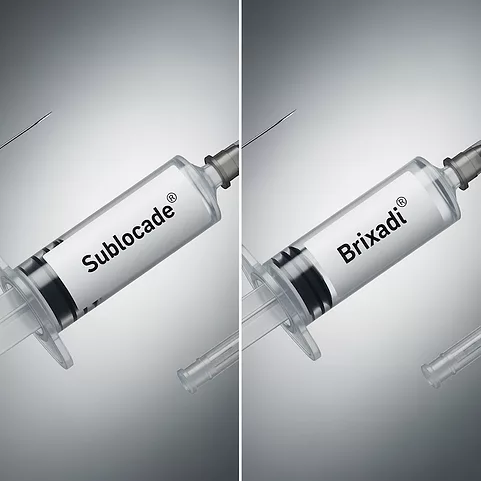Home » Anti-Inflammatory Drug an Antidepressant?
Anti-Inflammatory Drug an Antidepressant?
October 1, 2012
From The Carlat Psychiatry Report
Glen Spielmans, PhD
Associate professor of psychology, Metropolitan State University, St. Paul, MN
Glen Spielmans, PhD, has disclosed that he has no relevant financial or other interests in any commercial companies pertaining to this educational activity.
Subject:
Depression
Short Description:
Anti-Inflammatory Drug an Antidepressant?
Background:
It seems that not a week goes by without another research paper drawing attention to the interface between immunology and psychiatry, or about biomarkers to predict response to psychotropic medications. A recent report from researchers at Emory University weighs in on both of these issues.
Researchers recruited 60 subjects with treatment-resistant depression, some (but not all) already taking antidepressants. Half were given an infusion of the anti-inflammatory drug infliximab (Remicade) (5 mg/kg) at baseline, and then again at weeks two and six of a 12-week trial. The other half were given placebo. There was no difference between infliximab and placebo in decreasing HAM-D scores. This is not surprising, since infliximab is an antagonist of the cytokine tumor necrosis factor (TNF) with no known role in treating depression.
Some subjects did respond, though. Twenty-two subjects had elevated (>5 mg/L) levels of the inflammatory biomarker hs-CRP (high-sensitivity C-reactive protein), and in this group, there was a statistically significant antidepressant response to infliximab. In subjects with high hs-CRP, the response rate was 62% (vs. 33% for placebo) and responders had a mean decrease of 3.1 points in the HAM-D. Specific symptoms that responded to infliximab included anxiety, fatigue, and suicidal ideation. Levels of hs-CRP and TNF decreased in the majority of subjects receiving infliximab, reflecting its anti-inflammatory effect.
As with any antidepressant study, some subjects who received placebo responded to the treatment, too. When the researchers looked more closely at the placebo responders, they found that these subjects had significantly lowerbaseline hs-CRP than non-responders (3.1 mg/L vs. 7.8 mg/L). The authors hypothesize that some “minimal level of inflammatory activity” may be necessary for an antidepressant response (even to placebo), whereas excessive inflammation may correlate with treatment resistance. Notably, whether a subject was taking psychotropic medication (n=37) or not during the 12-week study did not influence the results (Raison CL et al, Arch Gen Psychiatry 2012; online ahead of print).
TCPR's Take:
Infliximab doesn’t cross the blood-brain barrier, so all of its effects occur in the periphery. Nevertheless, it seems to have an indirect antidepressant effect in subjects whose baseline inflammatory markers are particularly high. Are we getting close to the day when we might order serum TNF and hs-CRP levels on our patients to predict their degree of treatment resistance or to plan an anti-inflammatory regimen first? It’s possible, although the authors point out that the small sample size and high dose of infliximab—not to mention the complexity of cytokines and inflammatory processes—makes this less likely to be used as a treatment strategy. That said, inflammation appears to have a greater role in treatment, and treatment resistance, than we may realize.
General PsychiatryDepression
Short Description:
Anti-Inflammatory Drug an Antidepressant?
Background:
It seems that not a week goes by without another research paper drawing attention to the interface between immunology and psychiatry, or about biomarkers to predict response to psychotropic medications. A recent report from researchers at Emory University weighs in on both of these issues.
Researchers recruited 60 subjects with treatment-resistant depression, some (but not all) already taking antidepressants. Half were given an infusion of the anti-inflammatory drug infliximab (Remicade) (5 mg/kg) at baseline, and then again at weeks two and six of a 12-week trial. The other half were given placebo. There was no difference between infliximab and placebo in decreasing HAM-D scores. This is not surprising, since infliximab is an antagonist of the cytokine tumor necrosis factor (TNF) with no known role in treating depression.
Some subjects did respond, though. Twenty-two subjects had elevated (>5 mg/L) levels of the inflammatory biomarker hs-CRP (high-sensitivity C-reactive protein), and in this group, there was a statistically significant antidepressant response to infliximab. In subjects with high hs-CRP, the response rate was 62% (vs. 33% for placebo) and responders had a mean decrease of 3.1 points in the HAM-D. Specific symptoms that responded to infliximab included anxiety, fatigue, and suicidal ideation. Levels of hs-CRP and TNF decreased in the majority of subjects receiving infliximab, reflecting its anti-inflammatory effect.
As with any antidepressant study, some subjects who received placebo responded to the treatment, too. When the researchers looked more closely at the placebo responders, they found that these subjects had significantly lowerbaseline hs-CRP than non-responders (3.1 mg/L vs. 7.8 mg/L). The authors hypothesize that some “minimal level of inflammatory activity” may be necessary for an antidepressant response (even to placebo), whereas excessive inflammation may correlate with treatment resistance. Notably, whether a subject was taking psychotropic medication (n=37) or not during the 12-week study did not influence the results (Raison CL et al, Arch Gen Psychiatry 2012; online ahead of print).
TCPR's Take:
Infliximab doesn’t cross the blood-brain barrier, so all of its effects occur in the periphery. Nevertheless, it seems to have an indirect antidepressant effect in subjects whose baseline inflammatory markers are particularly high. Are we getting close to the day when we might order serum TNF and hs-CRP levels on our patients to predict their degree of treatment resistance or to plan an anti-inflammatory regimen first? It’s possible, although the authors point out that the small sample size and high dose of infliximab—not to mention the complexity of cytokines and inflammatory processes—makes this less likely to be used as a treatment strategy. That said, inflammation appears to have a greater role in treatment, and treatment resistance, than we may realize.
KEYWORDS antidepressants research_updates

Issue Date: October 1, 2012
Table Of Contents
Recommended
Newsletters
Please see our Terms and Conditions, Privacy Policy, Subscription Agreement, Use of Cookies, and Hardware/Software Requirements to view our website.
© 2025 Carlat Publishing, LLC and Affiliates, All Rights Reserved.


_-The-Breakthrough-Antipsychotic-That-Could-Change-Everything.webp?t=1729528747)



